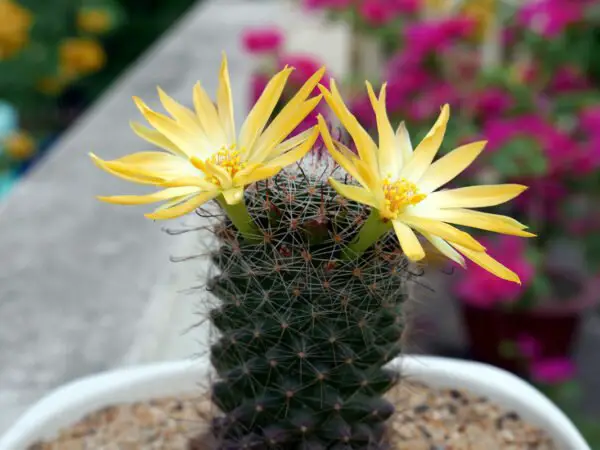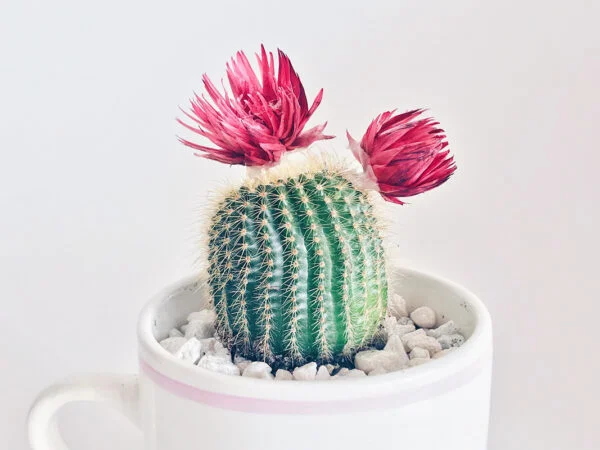Ever wondered what cactus water tastes like? Curious about its flavor profile and whether it's worth a try? Well, you're in the right place! In this post, we'll delve into the unique taste of cactus water, exploring its refreshing qualities and distinct notes. Whether you're a fan of exotic beverages or simply intrigued by unconventional flavors, understanding the taste of cactus water is an adventure on its own. So, let's embark on this flavorful journey together and uncover what makes cactus water stand out among other hydrating options.
Key Takeaways
-
Cactus water has a mild, slightly sweet taste with a hint of earthiness, making it appealing to those who prefer subtle flavors.
-
While cactus water offers similar hydration benefits to coconut water, it contains less sugar and calories, making it a healthier option for those watching their sugar intake.
-
Rich in antioxidants, electrolytes, and vitamins, cactus water provides various health benefits, including improved skin health, reduced inflammation, and better digestion.
-
The hype around cactus water is justified due to its unique taste, lower sugar content, and potential health advantages over other hydrating beverages.
-
Factors contributing to cactus water's popularity include its sustainable sourcing, natural hydration properties, and versatility in culinary applications.
-
When compared to coconut water, cactus water stands out for its lower sugar content, milder taste, and potential appeal to individuals seeking healthier beverage alternatives.
Taste Profile
Mild, Slightly Sweet Flavor
Cactus water has a mild and slightly sweet flavor that sets it apart from other beverages. The taste is often likened to a subtle mix of fruits like pear and watermelon. This makes it an appealing option for those who prefer drinks with a more delicate sweetness.
The mildness of the flavor also makes cactus water versatile, as it can be easily incorporated into various recipes without overpowering other ingredients. For example, adding cactus water to smoothies or cocktails can enhance the overall taste without dominating the drink.
Hint of Tanginess & Refreshing Earthy Undertone
In addition to its mild sweetness, cactus water also carries a hint of tanginess, which adds depth to its flavor profile. This tangy note provides a refreshing contrast and contributes to making the beverage more complex in taste.
Moreover, cactus water often features a subtle earthy undertone, lending it a unique character that appeals to individuals seeking beverages with natural flavors. The earthy essence complements the overall composition of the drink, creating an intriguing blend that many find enjoyable.
Low in Calories and Sugar
One key factor contributing to the popularity of cactus water is its low caloric content. Compared to many other sweetened beverages on the market, cactus water offers consumers a hydrating option with minimal impact on their daily calorie intake.
Furthermore, this beverage contains only naturally occurring sugars from the fruit itself, making it an attractive alternative for individuals looking to reduce their added sugar consumption while still enjoying some sweetness in their drinks.
Contains Vitamins C and A & Rich in Antioxidants
Another compelling aspect of cactus water is its nutritional benefits. It contains essential vitamins such as vitamin C and vitamin A, both known for their roles in supporting immune function and overall health.
Moreover, cactus water is rich in antioxidants which help combat oxidative stress within the body. These antioxidants contribute not only to promoting well-being but also play a role in maintaining healthy-looking skin—a desirable feature for many health-conscious consumers seeking holistic hydration options.
Cactus Water Taste Explained
Cactus water offers a unique taste that sets it apart from other beverages. Unlike the slightly nutty and sweet flavor of coconut water, cactus water has a more subtle, refreshing taste with a hint of sweetness. While coconut water has gained popularity among health-conscious consumers due to its rising trend and celebrity endorsements, cactus water provides an attractive alternative for those seeking a different hydration option.
Cactus water's unique flavor profile makes it an appealing choice for individuals looking to reduce their consumption of sugary drinks. With its mild sweetness and refreshing taste, it stands out as a healthier alternative to traditional fruit juices or energy beverages. The distinct flavor of cactus water appeals to those who prefer beverages with less intense flavors compared to typical sports drinks.
Texture and Consistency
In terms of texture and consistency, cactus water differs significantly from other popular beverages on the market. Unlike thick fruit juices or creamy coconut milk, cactus water boasts a light and watery texture that is similar to plain drinking water but with added natural flavors.
Compared to traditional fruit juices which can be heavy or pulpy, cactus water provides a clear and smooth consistency that makes it easy to drink without feeling weighed down by excessive sugars or artificial additives often found in other flavored drinks.
Moreover, while sports drinks are designed for rapid hydration during physical activities and workouts, they often contain high levels of sugar along with electrolytes. In contrast, cactus water offers unique hydration benefits beyond plain drinking water without the heaviness commonly associated with some sports drinks.
Nutritional Advantages Over Coconut Water
Antioxidant Content
Cactus water has a light and smooth mouthfeel with a thin consistency similar to regular water. Unlike coconut water, it doesn't have any pulp or gritty texture, making it more enjoyable for those who prefer a smoother drink. The absence of pulp also means that cactus water is easier to consume and can be more refreshing.
Cactus water contains high levels of betalains and polyphenols, which are powerful antioxidants. These compounds play a crucial role in protecting the body from harmful molecules called free radicals. By consuming cactus water, individuals can potentially benefit from these antioxidant properties while enjoying its light and smooth taste.
Hydration Properties
In terms of hydration, cactus water offers significant advantages over coconut water due to its unique composition. It's an excellent source of hydration as it contains natural electrolytes that aid in replenishing fluids in the body after physical activity or exposure to heat. Moreover, the potential benefits for skin health and aging make it an attractive option for those looking to improve their overall cellular health.
The high levels of betalains found in cactus water contribute not only to its vibrant color but also provide anti-inflammatory properties that support effective rehydration due to its high water content. This makes it suitable for post-exercise hydration as well as daily consumption for maintaining optimal fluid balance within the body.
Anti-inflammatory Benefits
Compared to coconut water, cactus water stands out due to its natural ability to reduce inflammation within the body through effective rehydration mechanisms facilitated by its high-water content and essential nutrients such as betalains and polyphenols.
Health Benefits of Cactus Water
Hangover Relief
Cactus water is a promising remedy for hangovers due to its anti-inflammatory compounds. These compounds have the potential to reduce inflammation in the body, providing relief for inflammatory conditions. For instance, if you've had a bit too much to drink and wake up feeling groggy, cactus water can help alleviate those symptoms by targeting the inflammation caused by alcohol consumption.
In addition to being an effective hangover reliever, cactus water's anti-inflammatory properties make it suitable for individuals with various inflammatory conditions such as arthritis or muscle soreness after intense workouts. By reducing overall inflammation in the body, cactus water contributes to improved well-being and comfort.
Cactus water provides essential nutrients lost during alcohol consumption. It contains electrolytes like magnesium and potassium that help replenish what your body loses when drinking alcohol. This makes it an excellent choice for rehydration after indulging in alcoholic beverages.
Post-Workout Recovery
If you're looking for a natural way to recover from an intense workout session or a night of drinking without upsetting your stomach, then cactus water is worth considering. Its hydrating properties make it gentle on the stomach while providing essential nutrients necessary for post-workout recovery.
Coconut water has been popularly used as a post-workout beverage due to its hydrating benefits; however, some people find its taste unappealing or overly sweet. In contrast, cactus water offers similar hydration benefits without overwhelming sweetness or artificial additives that may cause stomach discomfort post-exercise or drinking.
After engaging in physical activities or consuming alcoholic drinks, our bodies require proper rehydration along with vital nutrients like electrolytes and antioxidants which are present in abundance within cactus water. Therefore, opting for this natural alternative can aid in faster recovery and replenishment of lost nutrients without causing digestive distress commonly associated with other beverages.
Evaluating Cactus Water's Hype
Media Influence
Cactus water has been praised for its ability to replenish electrolytes lost during exercise, support muscle recovery with natural hydration, and help restore energy levels after physical activity. The media plays a significant role in promoting these benefits. Wellness magazines and blogs have featured cactus water as a trendy alternative to traditional sports drinks. Social media influencers are also actively endorsing the hydrating properties of cactus water, further amplifying its popularity. Lifestyle and health publications have contributed to the growing coverage of cactus water's benefits, leading more people to consider it as an essential part of their wellness routines.
The hype around cactus water is not just a passing trend; it is backed by real consumer testimonials highlighting its positive effects on overall well-being. Consumers who have incorporated cactus water into their daily routines often share their experiences through various platforms such as social media, blogs, and product reviews. These testimonials serve as powerful endorsements that influence others to try out this refreshing beverage for themselves.
Consumer Testimonials
One individual shared how they found relief from post-workout fatigue after switching from sugary sports drinks to cactus water. They described the taste as subtly sweet with a hint of floral notes, making it an enjoyable choice for staying hydrated throughout the day without feeling overwhelmed by artificial flavors or excessive sweetness.
Another consumer mentioned that they discovered cactus water through a popular lifestyle magazine's recommendation and were pleasantly surprised by its light and refreshing taste compared to other plant-based waters like coconut or maple water.
It's evident that the collective impact of positive feedback from consumers across different channels has played a pivotal role in shaping public perception regarding what cactus water tastes like.
Key Factors in Cactus Water Popularity
Trend Analysis
Cactus water has garnered positive reviews for its refreshing taste, often described as a subtle blend of cucumber and green tea. Its unique flavor profile has attracted many consumers who seek a more interesting alternative to plain water or sugary drinks. The endorsements for its hydrating effects have contributed to its popularity, especially among health-conscious individuals looking for natural ways to stay hydrated. Testimonials praising its low-calorie content have also played a significant role in driving consumer interest.
Consumers are increasingly drawn to cactus water due to its growing reputation as a trendy beverage choice. The beverage is particularly popular among millennials, who are always on the lookout for novel and healthy drink options. Moreover, cactus water's presence in health food stores and online platforms has expanded significantly in response to this rising demand. As it continues to gain traction, it is becoming an attractive alternative to traditional drinks like sodas and artificially flavored waters.
Comparing Cactus and Coconut Water
Cactus water has been making its way into mainstream grocery stores, indicating a rising consumer interest in healthy beverages. This growing availability reflects the estimated market growth of cactus water. Consumers are increasingly seeking healthier alternatives to traditional sugary drinks, and cactus water fits the bill.
Compared to coconut water, cactus water offers a milder flavor profile with slight vegetal notes that set it apart from other plant-based waters like coconut and aloe vera. The taste of cactus water is distinct from fruit-infused waters as well. While coconut water tends to have a nuttier and sweeter taste, cactus water provides a refreshing yet subtle flavor that appeals to those looking for unique hydration options.
Potential Drawbacks of Cactus Water
Consumption Concerns
Cactus water, while lauded for its potential benefits, may pose some consumption concerns. Despite the antioxidant content that could benefit skin health and the vitamin C that supports immune system function, it's important to note that cactus water might not taste as expected. The taste can be described as slightly sweet with a hint of vegetal flavor, often compared to a mix of cucumber and watermelon. Some people find this taste refreshing, while others may not enjoy it.
The low sugar content in cactus water contributes to its overall health benefits. However, individuals who are sensitive to cactus plants should exercise caution when consuming cactus water due to possible allergen concerns. It's always advisable for those trying it for the first time to do so in moderation.
Product Availability
One drawback associated with cactus water is its natural diuretic properties. While this can be beneficial for some individuals seeking hydration or detoxification, excessive consumption could lead to dehydration if fluid intake isn't increased accordingly.
Moreover, individuals with existing kidney issues should approach cactus water consumption with caution due to its potential impact on kidney function. For these individuals, consulting a healthcare professional before incorporating cactus water into their diet is recommended.
Understanding Cactus Water Appeal
Cultural Influence
Cactus water has gained popularity and is now widely available through online retailers. It's also increasingly present in specialty health food stores, with the potential for expansion into mainstream supermarkets. This availability reflects a growing interest in this unique beverage.
Historically, certain cultures have used cacti as a source of hydration. The symbolic significance of cacti as a sustainable resource is evident in some regions where it holds cultural traditions incorporating cactus-based beverages. For example, in Mexico, nopales (prickly pear cactus) has been consumed for centuries due to its hydrating properties and is often included in traditional dishes.
The increasing presence of cactus water suggests that it appeals not only to those seeking alternative hydration options but also to individuals interested in exploring diverse cultural influences on food and beverages.
Sustainability Aspect
Cacti are known for their resilience and ability to thrive in arid environments, making them an environmentally friendly choice for hydration. Their historical use as a source of hydration underscores their sustainability aspect.
In regions where water scarcity is prevalent, the use of cacti as a source of hydration showcases its importance beyond just being a trendy beverage option. By embracing cactus-based beverages, individuals can show support for sustainable practices while enjoying the refreshing taste of this unique drink.
The incorporation of cactus water into various consumer products aligns with the growing emphasis on sustainability within the food and beverage industry. As consumers become more conscious about environmental impact, products like cactus water offer an appealing option that resonates with sustainability-minded individuals.
Conclusion
Unique Flavor
Cactus water has a unique flavor that is often described as mildly sweet with a hint of tanginess. It offers a refreshing taste that is comparable to coconut water or aloe vera juice. The flavor profile can vary slightly depending on the species of cactus and the way it's processed.
Cactus water contains natural sugars, giving it its subtle sweetness, while the tangy undertones come from its natural acidity. This distinctive combination makes it an appealing alternative to traditional fruit juices and sugary beverages.
Versatile Use
The taste of cactus water makes it an excellent standalone drink, but it also serves as a versatile ingredient in various recipes. Its mild sweetness and touch of tartness make it suitable for mixing into smoothies, cocktails, or even using as a base for flavored ice pops. Its unique flavor pairs well with other fruits and herbs when used in culinary applications.
As more people become aware of this beverage's taste profile, they are finding creative ways to incorporate cactus water into their diets beyond just drinking it straight from the bottle.
Summary
You've now got the lowdown on what cactus water tastes like, its nutritional benefits, and how it stacks up against coconut water. With its unique blend of flavors and impressive health perks, cactus water is making a splash in the beverage scene. But before you jump on the bandwagon, consider your own taste preferences and dietary needs.
Next time you're eyeing the beverage aisle, remember to weigh the pros and cons of cactus water for yourself. Whether you're looking for a refreshing alternative to sugary drinks or seeking out new ways to stay hydrated, cactus water might just quench your thirst while offering some added health bonuses. Cheers to staying informed about the latest trends in wellness drinks!
Frequently Asked Questions
What does cactus water taste like?
Cactus water has a subtly sweet and refreshing taste with a hint of berry-like flavor. It's often described as milder and less acidic compared to coconut water, making it appealing to those who prefer a more delicate taste.
What are the nutritional advantages of cactus water over coconut water?
Cactus water contains antioxidants, electrolytes, and taurine which can aid in hydration and provide potential health benefits. It is lower in calories and sugar compared to coconut water while still offering similar hydrating properties.
Are there any potential drawbacks of consuming cactus water?
While generally well-tolerated, some individuals may experience mild laxative effects due to the natural laxative properties found in certain types of cacti. It's advisable for individuals with sensitivities or medical conditions to consult with a healthcare professional before regular consumption.
Why has cactus water gained popularity?
The rise in popularity can be attributed to its unique taste profile, nutritional benefits, sustainable sourcing practices, and marketing efforts that highlight its exotic appeal. Consumers seeking healthier beverage alternatives have been drawn to the distinct qualities offered by cactus water.
How does cactus water compare to coconut water?
Both beverages offer hydration but differ in taste; where coconut is nuttier and slightly sweeter, cactus is milder with subtle fruity notes. Nutritionally speaking, they share similarities such as electrolyte content but vary in calorie and sugar levels.
Image Source: Paid image from CANVA




